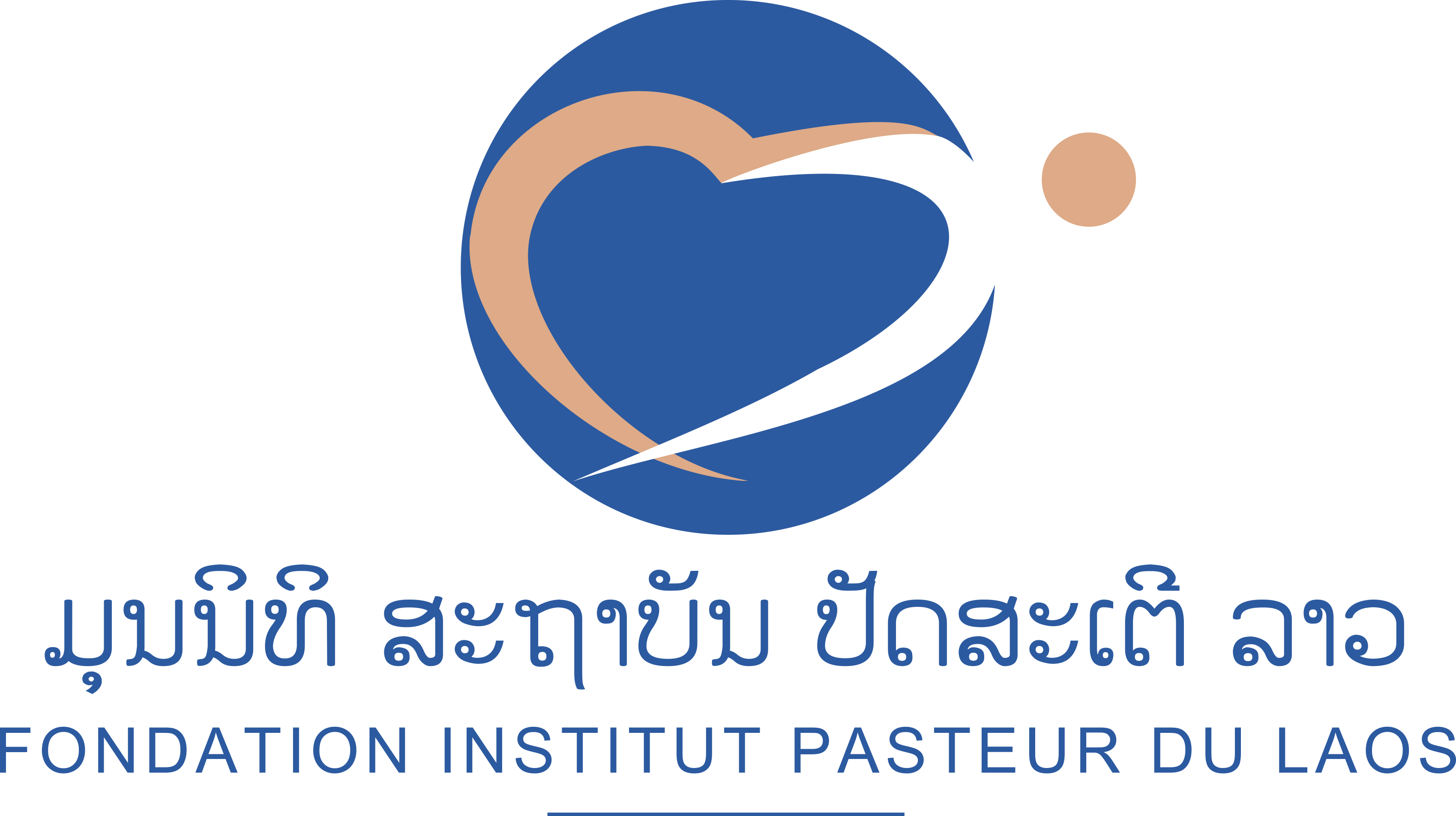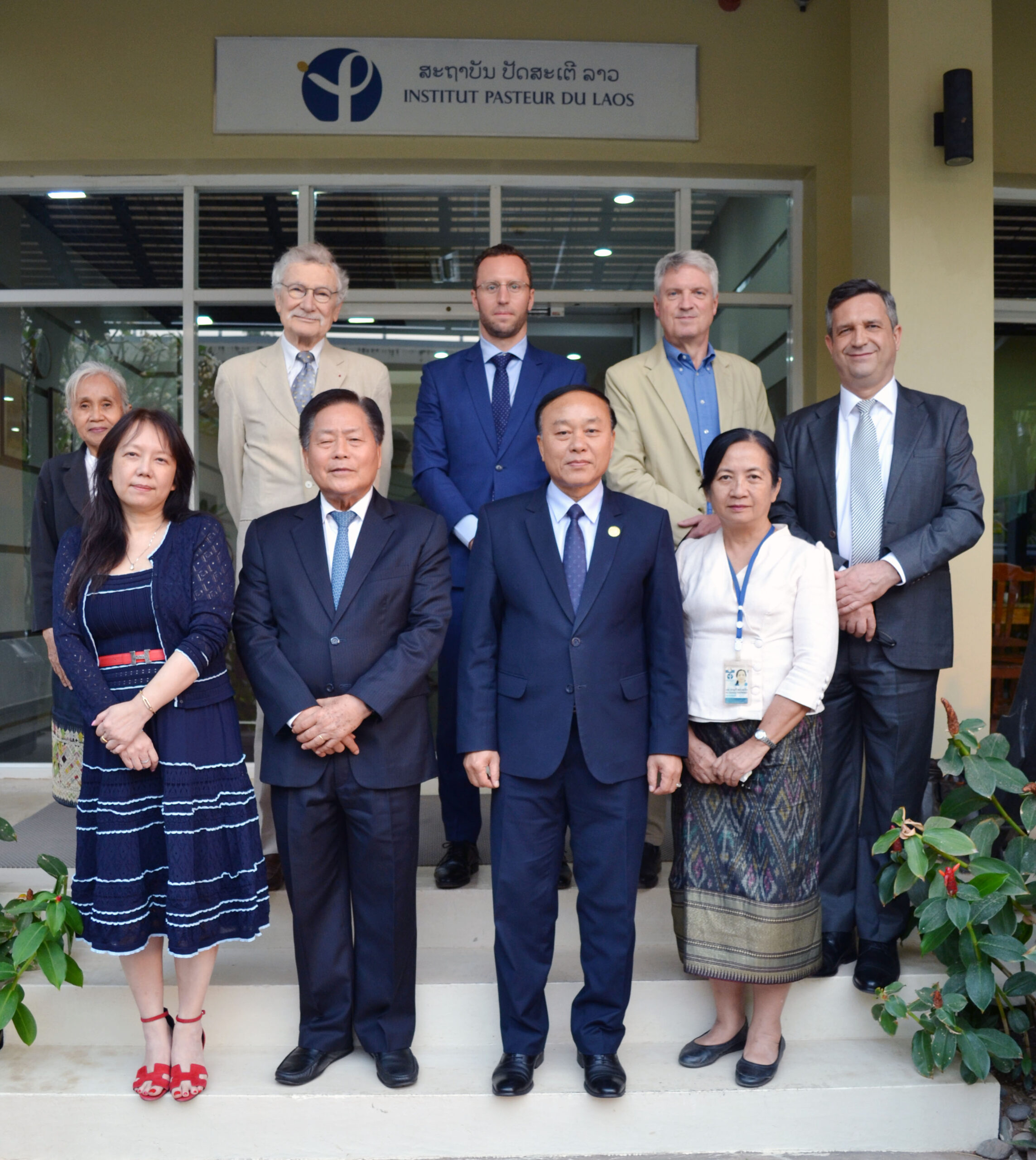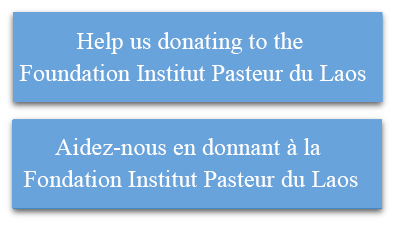LaoBiome
 Effects of “For Baby” supplementation on young children’s physical growth and a reduction of diarrheal episodes: A double-blinded randomized controlled, community-based trial in rural Lao PDR.
Effects of “For Baby” supplementation on young children’s physical growth and a reduction of diarrheal episodes: A double-blinded randomized controlled, community-based trial in rural Lao PDR.
Collaboration.
Lao Tropical and Public Health Institute (Lao TPHI), Ministry of Health, Lao PDR Seoul National University, Seoul, The Republic of Korea.
Funding.
ILDONG Pharmaceutical Co., Ltd. and Saeloun Bio Co., Ltd., The Republic of Korea.
Objective.
The aim of this trial is to determine the potential positive effects of the “For-Baby” formulation on physical growth and on a reduction of diarrheal episodes in young children aged 6–23 months-old. These effects are assessed at the time of inclusion and after one year of administration of the supplementation in Lao children.
Background.
Children living in communities with poor sanitation are at increased risk of developing environmental enteropathy (EE), a condition marked by significant changes in gut structure and function, as well as intestinal inflammation and diarrhea. Thus, EE may play an important role in malnutrition and impaired infant development [1].
In settings, where several micronutrient deficiencies often co-exist, multiple micronutrient powders (MNP) have been a preferred approach to improve young children’s nutrition and health [2,3]. MNP was originally designed for home-fortification of complementary foods to prevent deficiencies of multiple micronutrients such as iron, zinc, vitamin A, etc. Since 2014, 50 countries implemented large-scale programs to distribute MNP [4,5]. In Lao PDR, MNP was introduced as a supplementation program in 34 districts of 7 provinces in 2017, aiming to promote home-fortification of complementary foods to prevent deficiencies of multiple micronutrients that exists largely among malnourished children. While there is consistent evidence on the beneficial impact of MNP on iron status and anemia, the impact of MNP on morbidity, developmental, and growth outcomes has been inconsistent [4,6]. MNP use has also been associated with altered gut microbiota, intestinal inflammation, and an increased risk of diarrhea in some studies, possibly related to the provision of supplemental iron in MNP (10-12.5 mg/ day) and modified by individuals’ underlying iron status [7,8].
Recently, modulation of the microbiome by therapeutic diet and supplementation has been shown to be effective in animal models, as well as in humans [9]. This new therapeutic study to treat environmental enteropathy (EE) has been nominated as “the breakthrough of the year 2019” for nutritional therapy. Studies demonstrated that a single species of Lactobacillus plantarum is sufficient to induce growth promotion in different animal models from Drosophila to mice [9,10].
The long history of safe use of various probiotics in fermented foods and their presence in the normal intestinal and urogenital microbiota of humans has brought probiotic therapeutics to the forefront of scientific research [11,12]. Recent research has shown that certain probiotics are extremely useful for the treatment of EE in malnourished children and have significant growth promoting effects [1,13,14]. However, new studies are needed to better understand EE and its consequences.
This double blinded randomized controlled trial is designed to provide empirical evidence to inform global guidelines and country policies for delivering “For-Baby” supplements to young children which could provide the maximal beneficial impact on gut health and nutritional status of young children.
Methodology.
The LaoBiome project is a community-based double-blinded randomized controlled trial. Approximately 1,200 infants and young children 6-23 months of age were enrolled, and individually randomized to one of two intervention groups of 600 children: 1) daily administration of “For-Baby” supplements (Intervention Group); 2) daily administration of micronutrient placebo (Control Group). It was decided to provide micronutrients as a placebo as its use is currently recommended as a national nutrition policy.
However, from the programmatic point of view, iron taste in MNP reduces compliance, and therefore iron was excluded from MNP in this LaoBiome study. In both groups, children remained under observation and received their assigned supplements for a period of 12 months (52 weeks). Stool samples were collected from the study participants at three time points: month 0 (baseline data: before taking the supplement or placebo), month 6, and month 12.
The stool samples of the participants were examined for inflammation of the intestine, parasitic infection and intestinal microbiota composition. Inflammation of the intestine was determined by a Calprotectin Rapid Test performed on stools on site and by an ELISA test conducted in South Korea.
Parasitic infection was examined by Formalin Ether Concentration Technique (FECT) at IPL. Intestinal microbiota was analyzed in South Korea.
The ethical approval was obtained from the National Ethics Committee for Health Research, Lao Ministry of Health. Informed consent was obtained from parents or guardians of the study participants (infants and young children) before participating in the study.
The Month 0 (Baseline) survey was conducted from 24th March to 13th July 2023. The Month 6 (Midline) field survey was conducted from 6th October 2022 to 20th January 2023. The Month 12 (Endline) survey was conducted from 23rd March to 17th July 2023.
Results.
A total of 1209 participants were registered in this study. Stool samples were collected from the study participants three times: at Month 0 (baseline), Month 6 (midline) and Month 12 (endline). At Month 0, 1088 samples were tested by Calprotectin rapid test. 1075 samples were tested by FECT. 1073 samples were collected and stored at -80oC for intestinal microbiota analysis (Table 3). At Month 6, 946 samples were tested by Calprotectin rapid test, 921 samples were tested by FECT, and 911 samples were collected and stored in -80oC for intestinal microbiota analysis (Table 4). At Month 12 of the survey, 768 samples were tested by calprotectin rapid test, 828 samples were tested by FECT, and 763 samples were collected and stored at -80oC for intestinal microbiota analysis Intestinal inflammation was evaluated with Calprotection Rapid Test Cassette on sites and results were confirmed by ELISA in South Korea.
Detailed results can be found in the paper version of this report and in up-coming publications.
Discussion.
A total of 1209 participants (infants and young children) were included in this study. However, fewer participants took the supplements or placebo and provided their stool samples (Table 3-5). Field study teams found that the participants were being cared for by several adult members, such as parents, grandparents, and uncle/ aunt. The study teams contacted only one of the family members, explaining the objectives of the study and providing the supplement or placebo to this family member. But the information was then only partially shared with the other family members, or not shared at all. Therefore, adherence declined gradually even though the study teams visited the participant houses regularly. Another difficulty was the diarrhea that occurred during the few days that followed the administration of the supplement: some parents and guardians hesitated to continue taking the supplements even though the study team explained that diarrhea may happen and resolve within a week.
Some of the study participants were infected with intestinal parasites, such as ascaris and hookworm. These results suggest that the sanitation and hygiene conditions of some of the study participants are insufficient. Severe chronic infections with intestinal parasites may cause anemia, fatigue and occasionally heart failure in children. Thus, sanitation and hygiene conditions should be improved to promote better child health and growth.
Conclusion & Perspectives.
The preliminary results of this study suggest that the supplement/placebo may provide some benefits to improve intestinal inflammation. However, the supplement/ placebo may not have an impact on parasite infection. Intestinal microbiota analysis and calprotectin ELISA tests are currently ongoing in South Korea.
References.
1. Schwarzer L, Kaiser S, Flemer B, et al. Nutritional Targeting of the Microbiome as Potential Therapy for Malnutrition and Chronic Inflammation. Nutrients, 12(10): 3032, 2020.
2. Winichagoon P. Coexistence of micronutrient malnutrition: implication for nutrition policy and programs in Asia. Asia Pac J Clin Nutr, 17 Suppl 1: 346- 348, 2008.
3. Lamberti LM, Fischer Walker CL, Black RE. Zinc Deficiency in Childhood and Pregnancy: Evidence for Intervention Effects and Program Responses. World Rev Nutr Diet, 115: 125-33, 2016.
4. De-Regil LM, Suchdev PS, Vist GE, et al. Home fortification of foods with multiple micronutrient powders for health and nutrition in children under two years of age (Review). Evid Based Child Health, 8: 112- 201, 2013.
5. UNICEF. United Nations Children’s Fund. Annual Results Report. Nutrition, 2015.
6. Hess SY, Wessells KR, Hinnouho GM, et al. Iron status and inherited haemoglobin disorders modify the effects of micronutrient powders on linear growth and morbidity among young Lao children in a double-blind randomised trial. Br J Nutr, 122: 895-909, 2019.
7. Samadpour K, Long KZ, Hayatbakhsh R, Marks GC. Randomised comparison of the effects of Sprinkles and Foodlets with the currently recommended supplement (Drops) on micronutrient status and growth in Iranian children. Eur J Clin Nutr, 65: 1287-1294, 2011.
8. Zlotkin S, Arthur P, Schauer C, et al. Home-fortification with iron and zinc sprinkles or iron sprinkles alone successfully treats anemia in infants and young children. J Nutr, 133: 1075-1080 2003.
9. Shin DY, Yi DY, Jo S, et al. Effect of a new Lactobacillus plantarum product, LRCC5310, on clinical symptoms and virus reduction in children with rotaviral enteritis. Medicine (Baltimore), 99: e22192, 2020.
10. Schwarzer M, Makki K, Storelli G, et al. Lactobacillus plantarum strain maintains the growth of infant mice during chronic undernutrition. Science, 351: 854-857. 2016.
11. Maldonado NC, Chiaraviglio J, Bru E, et al. Effect of Milk Fermented with Lactic Acid Bacteria on Diarrheal Incidence, Growth Performance and Microbiological and Blood Profiles of Newborn Dairy Calves. Probiotics Antimicrob Proteins, 10: 668-676, 2018.
12. Vadopalas L, Zokaityte E, Zavistanaviciute P, et al. Supplement Based on Fermented Milk Permeate for Feeding Newborn Calves: Influence on Blood, Growth Performance, and Faecal Parameters, including Microbiota, Volatile Compounds, and Fatty and Organic Acid Profiles. Animals (Basel) 11. 2021.
13. Barkhidarian B, Roldos L, Iskandar MM, et al. Probiotic Supplementation and Micronutrient Status in Healthy Subjects: A Systematic Review of Clinical Trials. Nutrients, 13(9): 3001, 2021.
14. Hajare ST. Effects of potential probiotic strains LBKV-3 on Immune Cells responses in Malnutrite children: a double-blind, randomized, Controlled trial. J Immunoassay Immunochem, 42: 453-466, 20






